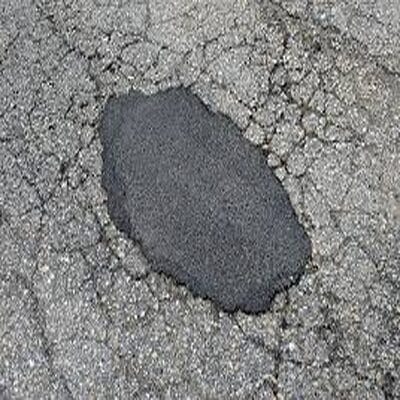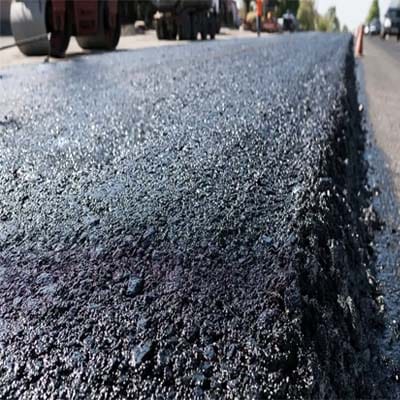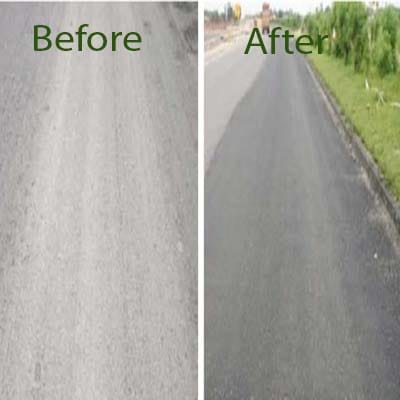
SABS Approved Materials
Certified quality you can count on.
Decades of Industry Experience
We’ve paved everything from private driveways to commercial roads.
Full-Service Solutions
From crack filling to complete road construction – we do it all.
Modern Equipment
We use the latest paving and repair tech to ensure efficiency and precision.
5-Year Workmanship Warranty
We stand behind the work we do.
Bitumen Binders for Reliable Road Construction in South Africa
At StimTar, we supply and apply high-quality bitumen binders for various road construction, surfacing, and repair applications across South Africa. Our range of binders is SABS-approved and tailored for performance under local climate and traffic conditions from heavy-duty highways to rural gravel road upgrades.
Whether you’re working on a municipal road, parking lot, or private estate project, bitumen binders form the essential adhesive layer that binds aggregate together to form strong, flexible, and long-lasting pavements.
Get A Free Quote !
What Are Bitumen Binders?
Bitumen binders are a key ingredient in road construction. They are viscous, black, tar-like substances derived from crude oil, used to bind stone, sand, and other aggregates together in road surfacing. When mixed with aggregates, they form asphalt or are sprayed directly in sealing techniques like chip and spray.
The binder plays a critical role in:
-
Waterproofing the road surface
-
Providing cohesion and flexibility
-
Absorbing traffic stress and reducing cracking
-
Allowing longer pavement life with minimal maintenance
Types of Bitumen Binders Offered by StimTar
We provide a complete range of bitumen binder grades and formulations suited for various applications:
Penetration Grade Bitumen
-
Most common in road construction
-
Graded by viscosity: 60/70, 80/100
-
Used in hot mix asphalt for base and wearing courses
Cutback Bitumen
-
Bitumen diluted with solvents
-
Ideal for cold climates or remote areas where heating isn’t practical
-
Used in surface dressing and patch repair
Bitumen Emulsion
-
Water-based binder
-
Safer and more environmentally friendly
-
Cold-applied and suitable for slurry seal, fog spray, and tack coat applications
Polymer Modified Bitumen (PMB)
-
Enhanced with polymers for improved elasticity and fatigue resistance
-
Ideal for high-stress roads, intersections, and airport runways
Foamed Bitumen
-
Bitumen expanded with water and air
-
Used in stabilisation of base layers during road recycling projects
At StimTar, we pride ourselves on delivering SABS-approved asphalt surfacing backed by decades of industry experience.
For more on asphalt standards in South Africa, visit the Southern African Bitumen Association (SABITA).
From private driveways to large-scale commercial roads, our team has done it all using only certified quality materials to ensure lasting results. We offer full-service solutions, from crack filling and pothole repairs to complete road construction, using modern paving equipment for maximum efficiency and precision. And for peace of mind, all our work is backed by a 5-year workmanship warranty because we stand behind every surface we build.
Applications of Bitumen Binders
Our bitumen binders are used in a wide variety of surfacing and maintenance projects:
| Application Type | Binder Type Used |
|---|---|
| Asphalt Road Construction | Penetration Grade, PMB |
| Chip and Spray Seals | Cutback Bitumen, Emulsion |
| Driveway Paving | Emulsion, Cutback |
| Slurry Seals | Cationic Emulsion |
| Pothole Repair | Cutback, Emulsion |
| Dust Suppression | Bitumen Emulsion |
| Road Recycling | Foamed Bitumen |
Recent Asphalt Projects
Why Quality Bitumen Binders Matter
Using low-grade or unsuitable bitumen binders can lead to serious issues such as premature cracking, rutting, and water damage on paved surfaces. At StimTar, we eliminate those risks by supplying only SABS- and SANRAL-compliant binders that are formulated for consistent performance across varying temperature ranges. Our products are engineered for durability under heavy traffic loads, offer fast curing times, and are easy to work with on site. Additionally, our team provides expert consultation to help clients choose the right binder type for their specific application ensuring long-term success on every project.
Consistent performance across temperature ranges
Compliance with SABS and SANRAL specifications
Durability under heavy traffic loads
Expert consultation on binder selection and application
Fast curing and workability
Types of Bitumen Binders – Comparison Table
| Binder Type | Application Method | Temperature Use | Key Feature | Best Used For |
|---|---|---|---|---|
| Penetration Grade | Hot applied | High | Strong adhesion, weather resistant | Asphalt mixes for roads, highways |
| Cutback Bitumen | Cold or warm applied | Cool/moderate | Thinned with solvents, quick drying | Surface dressing, patch repairs |
| Bitumen Emulsion | Cold applied | All (incl. wet) | Water-based, eco-friendly | Slurry seal, tack coat, fog spray |
| Polymer Modified Bitumen | Hot applied | High stress zones | Enhanced flexibility, anti-crack | Airports, intersections, heavy load areas |
| Foamed Bitumen | Warm applied | Varies | Foamed texture for easy mixing | In-place road recycling, base stabilization |
Benefits of Bitumen Binders
Bitumen binders are critical to ensuring the strength, flexibility, and longevity of road surfaces and paved areas. They provide cohesion between aggregates, create a water-resistant seal, and offer shock absorption under heavy vehicle loads. Choosing the right type of binder ensures optimal performance in varying environmental conditions and traffic volumes. Whether you’re working in a dry, rural area or a high-traffic metro intersection, there’s a specific bitumen binder designed to meet those demands.

Penetration Grade Bitumen Features & Application
-
High durability and weather resistance
-
Requires heating to apply
-
Excellent bonding strength
-
Used in hot mix asphalt
-
Ideal for roads, highways, and parking lots
Penetration grade bitumen is a traditional hot-applied binder designed for mixing with aggregates to produce asphalt. Its high viscosity makes it extremely durable under traffic stress and ideal for large-scale road construction. It is best used for highways, major roads, and commercial surfaces where heavy load resistance is needed.

Cutback Bitumen
-
Cold or warm-applied no need for high-temperature heating
-
Thinned with solvents for easier flow
-
Fast drying and easy to work with
-
Suitable for rural and remote areas
-
Used in surface dressing, patch repairs, and priming
Cutback bitumen differs from penetration grade because it contains volatile solvents, allowing it to be applied at lower temperatures. This makes it ideal for areas without access to heating equipment or where quick-drying and rapid patching is required, especially in maintenance or rural road settings.

Bitumen Emulsion
-
Cold-applied and water-based
-
Eco-friendly and safer for workers
-
Cures as water evaporates
-
Used for tack coats, fog sprays, and slurry seals
-
Excellent for driveways, rural roads, and footpaths
Bitumen emulsion stands out because it uses water as a carrier rather than solvents or heat, making it much safer, more environmentally friendly, and suitable for use in urban environments or lower-risk surfaces. It is best for low-traffic applications, dust suppression, or surface rejuvenation.

Polymer Modified Bitumen (PMB)
-
Contains polymer additives for enhanced performance
-
More elastic and resistant to deformation
-
Better crack and rutting resistance
-
Used in high-stress areas and intersections
-
Common in airports, bus lanes, and industrial roads
PMB is a premium binder engineered for high-performance roads. The addition of polymers gives it better flexibility and fatigue resistance than standard binders. It is ideal for environments exposed to frequent braking, turning, or heavy loading, such as intersections, roundabouts, and airports.

Foamed Bitumen
-
Produced by injecting water and air into hot bitumen
-
Creates a foamy texture for better mixing with base materials
-
Used in cold in-place road recycling and base stabilisation
-
Cost-effective for large-scale rehabilitation
-
Ideal for old road reconstructions
Foamed bitumen is unique in that it’s primarily used for recycling existing road layers, allowing the use of existing materials with added structural strength. It is most effective for full-depth reclamation projects, reducing the need for new materials and making it highly economical for large-scale road rehabilitation.
Learn more about bitumen binder standards and applications at the Southern African Bitumen Association (SABITA).
Benefits of Working With StimTar
-
Experienced team of civil engineers & machine operators
-
Fully compliant with SANRAL and municipal standards
-
Fast project turnaround
-
In-house plant and machinery
-
Custom solutions based on your site & budget
-
Serving Gauteng, Limpopo, North West, and beyond
Bitumen Binder Handling & Application Tips
To ensure optimal performance and lifespan of your bitumen binders:
-
Store binders in a temperature-controlled environment to prevent premature aging or separation
-
Heat penetration grade binders to the correct application temperature before mixing or spraying
-
Avoid contamination with water or debris during storage and transport
-
Use emulsions within their shelf life (typically 3–6 months) to maintain effectiveness
-
Always stir emulsions before use for even consistency and proper bonding
-
Consult technical data sheets for mixing ratios and curing times specific to each binder type
Proper storage, handling, and timely application can significantly improve binder performance and reduce failure risk in road construction projects.
Bitumen Binders vs Alternative Binders – What’s the Best Option?
| Feature | Bitumen Binders | Alternative Binders (e.g., Cement, Resin) |
|---|---|---|
| Installation Method | Cold or hot-applied depending on type | Mostly cold-applied or mixed onsite |
| Flexibility | Highly flexible under load | Rigid and prone to cracking |
| Waterproofing | Excellent water resistance | Moderate to poor unless sealed |
| Application Range | Roads, seals, patches, driveways, recycling | Mainly structural or aesthetic surfacing |
| Cost | Lower material and application cost | Higher, especially for large-scale projects |
| Repair & Maintenance | Easy to reapply or rework | More complex and costly |
Our Bitumen Supply & Delivery Capabilities
We supply bulk bitumen binders and drum-packed emulsions directly to construction sites, municipalities, and contractors across:
Gauteng
Johannesburg, | Pretoria | Midrand | Centurion | Randburg | Boksburg | Kempton Park | Alberton | Benoni | Krugersdorp | Soweto
Western Cape
Cape Town | Stellenbosch | Paarl | Worcester | George | Mossel Bay
KwaZulu-Natal
Durban | Pietermaritzburg | Richards Bay | Newcastle | Umhlanga | Margate | Ballito
Eastern Cape
Port Elizabeth (Gqeberha) | East London | Mthatha | Queenstown | Jeffreys Bay
Free State
Bloemfontein | Welkom | Bethlehem | Sasolburg | Kroonstad
Limpopo
Polokwane | Tzaneen | Thohoyandou | Lephalale | Mokopane
Mpumalanga
Nelspruit (Mbombela) | Witbank (eMalahleni) | Middelburg | Secunda | Barberton
North West
Rustenburg | Brits | Mahikeng | Klerksdorp | Potchefstroom
Northern Cape
Kimberley | Upington | Springbok | Kuruman | De Aar
Western Regions & Outlying Areas
We also serve rural developments, mining sites, farms, and remote communities that require road paving, driveway resurfacing, or industrial asphalt surfacing.
FAQs – Frequently Asked Questions -Asphalt Surfacing South Africa
What is the shelf life of bitumen binders?
It depends on the binder type. Emulsions last 3–6 months in sealed drums; penetration grade bitumen can last 1–2 years under correct storage.
Can I use bitumen binders in cold or rainy conditions?
Yes, especially bitumen emulsions and cutbacks, which are designed for lower temperatures or moist surfaces.
Are StimTar’s bitumen binders SABS-approved?
Yes. All our products meet SABS and SANRAL specifications for quality and performance.
Do you deliver nationally?
We primarily serve Gauteng and surrounding provinces, but can deliver to any site across South Africa by arrangement.
Do you assist with application or only supply?
We do both. StimTar offers turnkey surfacing services, from supply to site preparation and application.
What’s the difference between penetration grade and polymer modified bitumen?
Penetration grade bitumen is a standard binder used in asphalt mixes for general road construction. Polymer Modified Bitumen (PMB) is enhanced with polymers to increase elasticity, durability, and resistance to deformation, making it suitable for high-traffic or high-stress areas.
Can I store bitumen binders outdoors?
Bitumen binders should be stored in covered, temperature-controlled environments to prevent degradation. Emulsions, in particular, should be kept out of direct sunlight and protected from freezing temperatures.
Do I need specialized equipment to apply bitumen binders?
It depends on the type of binder. Emulsions and cutbacks can often be applied with sprayers or manually, while penetration grade and PMB typically require heated tanks, mixing machinery, or mechanical pavers for proper application.
What safety precautions should be followed when working with bitumen binders?
Always wear protective clothing, gloves, and eye protection. Bitumen must be handled at correct temperatures to prevent burns, and emulsions should not be mixed with reactive chemicals. Our team follows strict safety protocols on every site.
Can bitumen binders be used for dust suppression?
Yes, specific types like bitumen emulsion are commonly used in dust suppression, especially in mining roads, rural pathways, and unpaved surfaces.
Do bitumen binders comply with government and municipal project requirements?
Yes. All our bitumen binders meet SABS, SANRAL, and local municipal standards, making them fully compliant for use in tendered public works and private development projects.
How do I know which binder is right for my project?
Contact us for a site consultation. We evaluate your road conditions, traffic load, climate, and project goals to recommend the most suitable binder — from emulsions for residential paving to PMB for heavy-duty intersections.
Let’s Talk About Your Surface Needs
Whether it’s a driveway, road, or parking lot – we’ll help you plan and pave it right. Contact us today for expert advice and a no-obligation quote.





